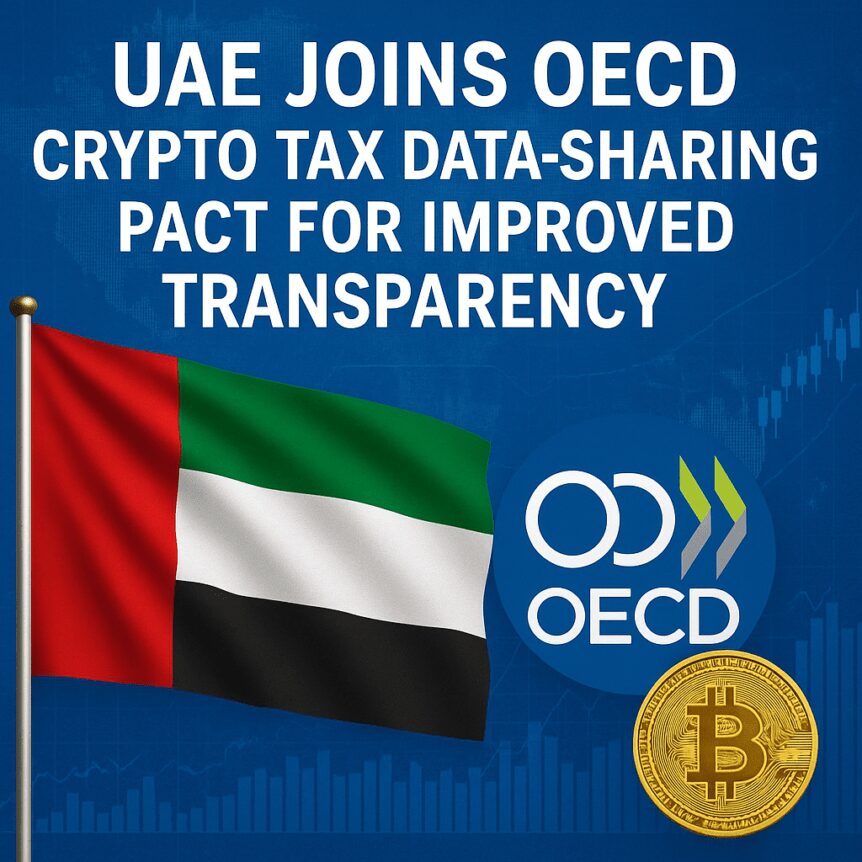
The United Arab Emirates has taken a notable step toward aligning its cryptocurrency regulations with global tax standards by signing the Multilateral Competent Authority Agreement on the Automatic Exchange of Information under the Crypto-Asset Reporting Framework (CARF).
The UAE’s Ministry of Finance (MOF) announced the formalization of this agreement over the weekend, underscoring the nation’s commitment to implementing the Organisation for Economic Co-operation and Development’s (OECD) comprehensive digital asset reporting regime. This framework aims to facilitate the automatic exchange of tax-related data on crypto activities across participating jurisdictions, bolstering efforts toward transparency and compliance within the rapidly evolving crypto markets.
The MOF revealed that the UAE intends to deploy the CARF framework by 2027, with initial information sharing expected to commence in 2028. This aligns with the global push for enhanced tax transparency in the blockchain and broader digital asset sectors, including assets like NFTs and decentralized finance (DeFi) protocols.
Furthering this initiative, the UAE launched a public consultation on September 15 to gather feedback from key industry stakeholders—such as crypto exchanges, custodians, traders, and advisory firms. The consultation period will run until November 8, allowing the government to refine its approach ahead of full implementation.
In addition to the UAE, over 50 jurisdictions—including New Zealand, Australia, and the Netherlands—are also committed to adopting the framework, signaling a global shift toward standardized crypto tax reporting. Switzerland has advanced its efforts with plans to exchange crypto tax data with 74 countries, including most G20 members, further integrating blockchain activities into international financial transparency efforts.
South Korea has finalized its agreement to participate in CARF, as reported on September 2. The country’s National Tax Service is collaborating with local crypto exchanges and international bodies to facilitate the automatic sharing of crypto tax data. This move complements their ongoing crackdown on crypto-related tax evasion, exemplified by recent efforts such as the seizure of crypto assets of suspected tax dodgers, notably in Jeju City on August 17.
The global momentum toward streamlined tax compliance through the blockchain is reshaping how crypto assets are regulated, with the UAE and South Korea positioning themselves as key players in this evolving landscape of crypto regulation and transparency.
This article was originally published as UAE Joins OECD Crypto Tax Data-Sharing Pact for Improved Transparency on Crypto Breaking News – your trusted source for crypto news, Bitcoin news, and blockchain updates.
Also read: MetaMask’s mUSD Sees 4x Growth in First Week After Launch